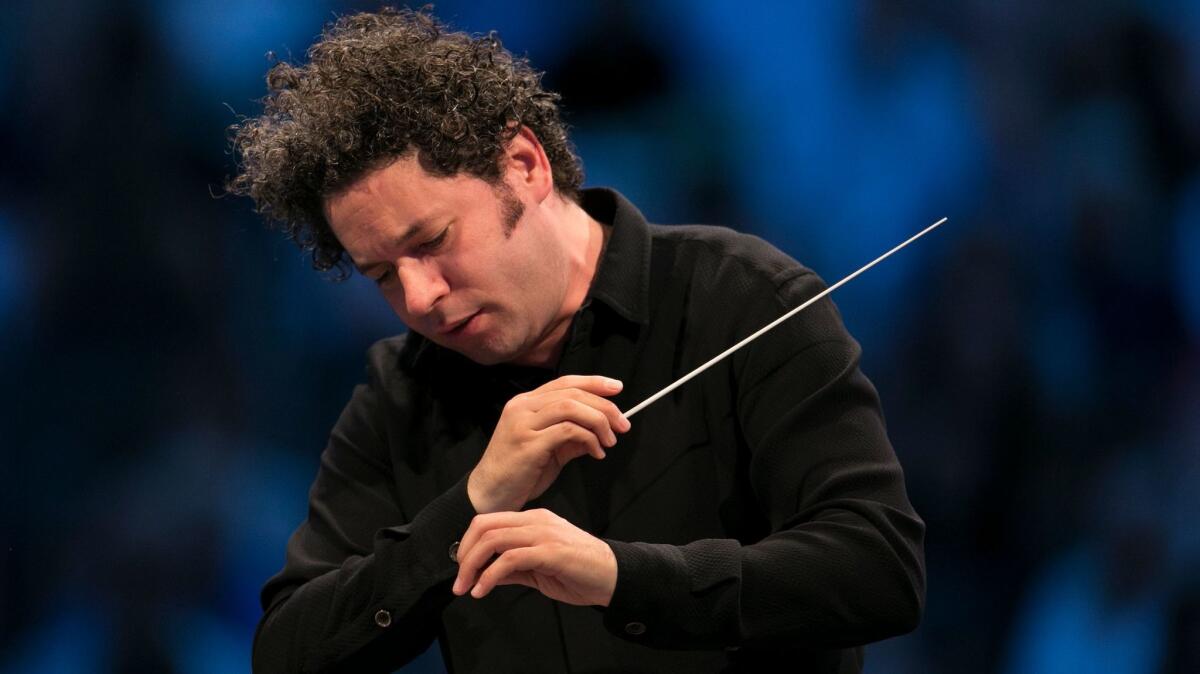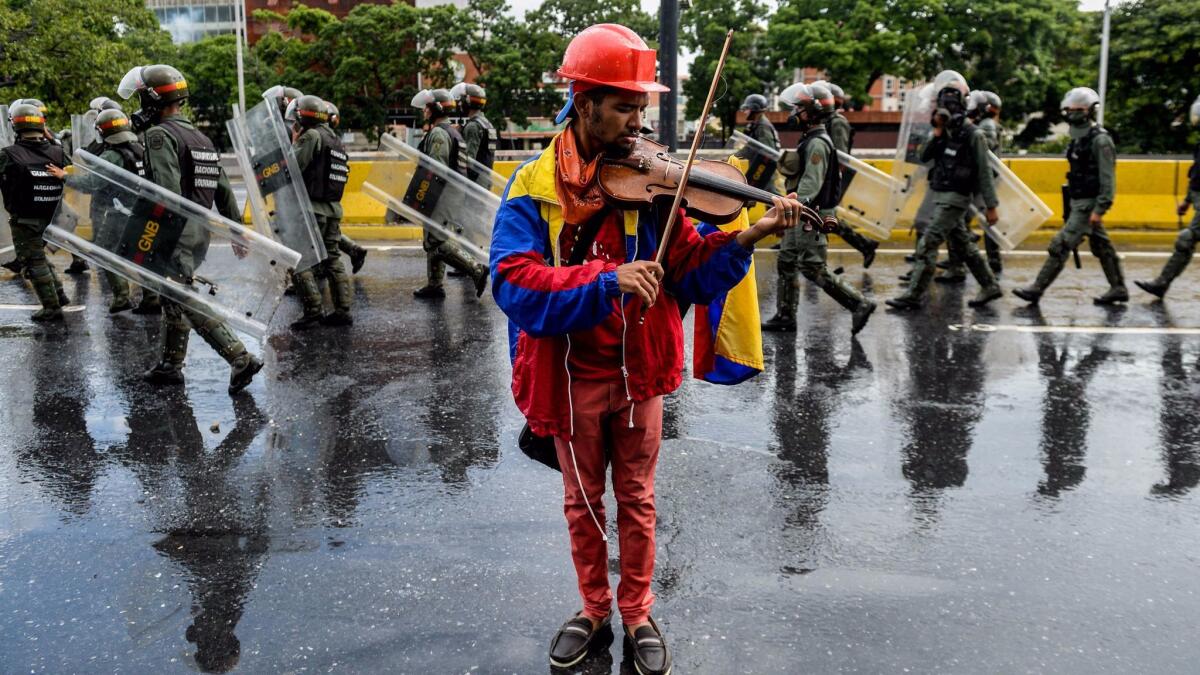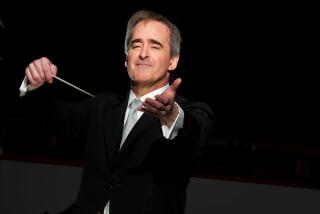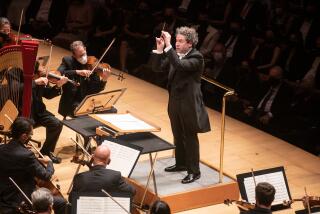With his home country in crisis, L.A. Phil’s Dudamel finds himself the target of Venezuelan president

Gustavo Dudamel, the Los Angeles Philharmonic music director who has slowly been pulled deeper into the political and economic crisis of his native Venezuela, helped to win the release of a musician-protester detained by the government, a source close to the negotiations said.
Dudamel was involved in the talks to release Wuilly Arteaga, a Venezuelan violinist who gained a following on social media for playing music in the middle of violent street protests against President Nicolas Maduro. National guard forces arrested Arteaga during a demonstration last month; he was released Tuesday.
Dudamel declined to comment, and no further details of his involvement in Arteaga’a release were available.

SIGN UP for the free Essential Arts & Culture newsletter »
News of Dudamel’s role followed comments Friday from Maduro, who appeared on television to criticize the conductor and one-time Maduro supporter, the Associated Press said.
“I hope God forgives you,” Maduro reportedly said, criticizing Dudamel for spending time in Madrid and Los Angeles while a political and economic crisis deepens in his homeland.
“Welcome to politics, Gustavo Dudamel. But act with ethics, and don’t let yourself be deceived into attacking the architects of this beautiful movement of young boys and girls,” Maduro said, referring to Dudamel’s longtime association with El Sistema, the revered Venezuelan musical education program.
Dudamel spoke out against the Maduro government in May after a member of El Sistema died in street protests than have killed more than 120. “We don’t need more blood,” Dudamel told Times music critic Mark Swed in an interview. “It’s not right for people to be dying in demonstrations. We need voices that unite Venezuela.”
Support coverage of the arts. Share this article.
ARTS AND POLITICS COLLIDE
Dennis Prager draws classical newbies, and a musicians’ boycott
Why the world needs ‘Hamilton’ now
What to do with Confederate monuments? One art critic’s answer
More to Read
The biggest entertainment stories
Get our big stories about Hollywood, film, television, music, arts, culture and more right in your inbox as soon as they publish.
You may occasionally receive promotional content from the Los Angeles Times.






